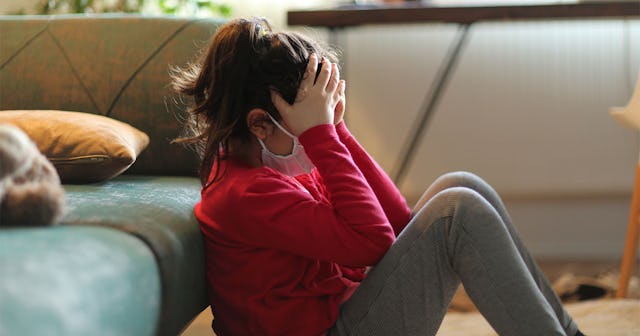Surgeon General Warns Of A Rising Mental Health Crisis Among Kids

U.S. Surgeon General Dr. Vivek H. Murthy issued a rare public health advisory to warn that there’s a mental health crisis happening among kids
From an unstable job market to climate disaster to, of course, the COVID-19 pandemic, today’s children and young people face an unprecedented set of challenges. And now, the U.S. surgeon general, Dr. Vivek H. Murthy, is warning that all those challenges are leading to a “devastating” mental health crisis among kids and young people, causing adolescent anxiety, depression, and other forms of mental health distress to rise.
In a rare public advisory, Murthy warned that the pandemic has intensified a rise that we were already seeing in mental health problems among youths. His 53-page report cited higher numbers of self-reported depression and anxiety symptoms, as well as more emergency room visits for kids as a result of mental health crises.
Shockingly, the report shows that emergency room visits for suicide attempts rose 51 percent for adolescent girls in early 2021, compared to the same time period in early 2019. Visits for adolescent boys rose 4 percent.
“It would be a tragedy if we beat back one public health crisis only to allow another to grow in its place,” Murthy wrote in the first part of his advisory. “Mental health challenges in children, adolescents, and young adults are real, and they are widespread. But most importantly, they are treatable, and often preventable.”
Around the globe, symptoms of anxiety and depression doubled their incidence during the COVID-19 pandemic. But before the pandemic even began, mental health problems were already on the rise in the U.S., with emergency room visits related to depression and anxiety up 28 percent between 2011 and 2015. Murthy says American kids, in particular, have been seeing a worrying rise in mental health symptoms for a number of years, but that in the last 1-2 years, that rise has intensified.
The reasons for the sharp rise in adolescent cases, in particular, is not known. Murthy speculated that isolation from relationships with friends and family during the pandemic has likely played a role, but also noted that our fast-paced media culture is likely to leave young people feeling overwhelmed and helpless.
“Young people are bombarded with messages through the media and popular culture that erode their sense of self-worth — telling them they are not good-looking enough, popular enough, smart enough or rich enough,” he wrote. “That comes as progress on legitimate, and distressing, issues like climate change, income inequality, racial injustice, the opioid epidemic and gun violence feels too slow.”